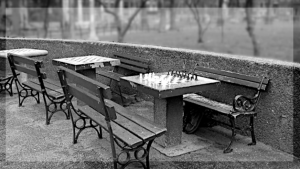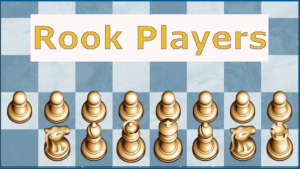
When Castles Attack
|
This type of mate is so rare it seems exquisite. And there are so few examples of in the history of the game, that most are well-known. I tried to gather as many examples as I could to put them all in one place. The most famous Mate-by-Castling game of all is that between Edward Lasker and George Thomas in London in 1912. What's remarkable about this game is that is wasn't checkmate by castling at all, but could have been. For whatever reason, Lasker chose the more mundane mating move:
My personal favorite Mate-by-Castling game, and one of my overall favorite games was the following one between the Canadian IM Lawrence Day and the Dutch then-IM, Lodewijk Prins, at the 1968 Lugano Olympiad in Switzerland. It actually ended with White's resignation after 28...Qe4. According to IM Day, "I don't think Prins played on after ..Qe4+ but Cozens added the finale for drama in the first edition of "The King Hunt". The second edition also corrected my name from D. Laurence. . . Certainly the moves included after Qe4+ are indeed the natural continuation, and it is a beautiful concept. But it would appear that this mate by castle did not actually occur."
During Morphy's time, withholding players names and crediting games to "Amateur" was often the case. Names were often dropped in consideration of the loser when published.
Dr. Antonin Kvicala (1847-1908) was best known as a chess problemist. The following miniature played out like a problem.
The following game was played between Oswald Seuss of Austria and Harri Hurme of Finland at the Student Olympiad (U26) in Dresden in the summer of 1969.
IM Mario Lanzani was the Italian Champion in 1987. The following game is said to have been played in Milan in 1988. Since the champion lost and his opponent's last name is all that's given, this was possibly from a simul.
The following game is one I encountered with no information at all. So, I put it here for entertainment purposes only- In 1982 the BCM published this game played between a human and an early dedicated chess computer in Germany.
|




